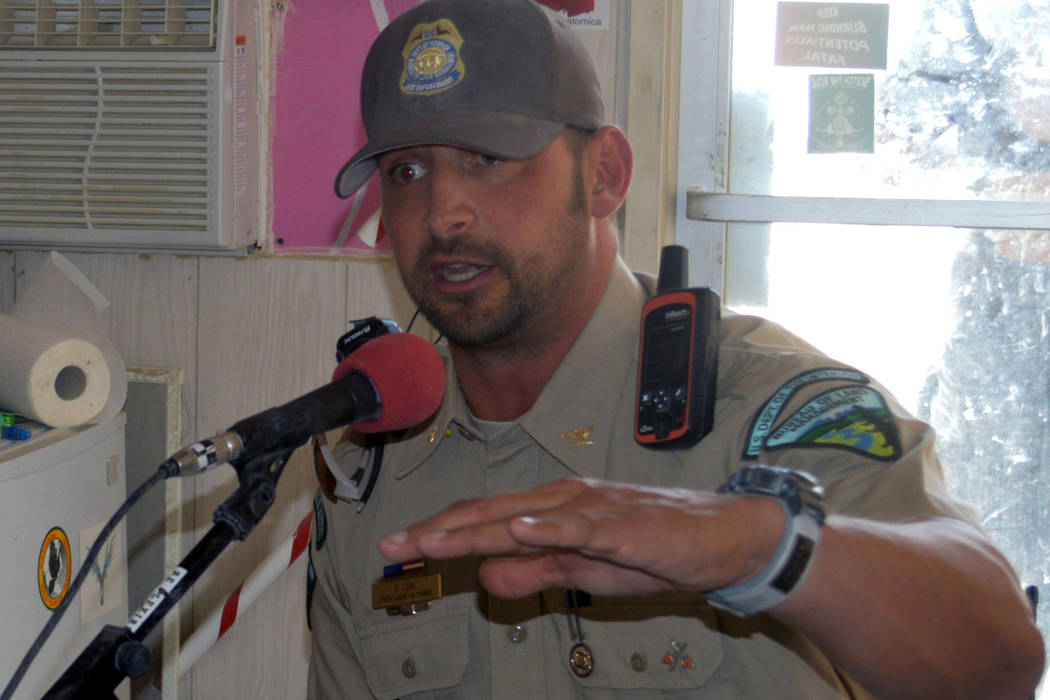Agent in charge during 2014 Bundy standoff no longer with BLM
SALT LAKE CITY — A federal agent who had been scrutinized for his handling of rare evidence as well as behavior at the counterculture Burning Man festival is no longer an employee of the Bureau of Land Management, authorities said Friday.
Daniel Love, who played a command role in federal agents’ 2014 standoff with Nevada rancher and states’ rights figure Cliven Bundy, no longer works for the agency, spokeswoman Megan Crandall told the Associated Press.
She did not answer questions about the timing or circumstances of his departure, citing federal privacy laws.
A lawyer for Love, Lisa Kleine, did not immediately return messages seeking comment. There was no answer at a publicly listed phone number for him.
Love still worked for the agency on Aug. 24, when a federal investigative report was released saying he handed out valuable stones known as moqui marbles to colleagues and a contractor “like candy,” as one witness told investigators.
The rocks are unique geological formations of iron oxide that form in sedimentary rock and the agency was holding them as evidence in an investigation into whether they were illegally collected from an unnamed national park, according to a U.S. Department of Interior report.
It also found Love told an employee to delete some emails that contained bureau information requested by then-U.S. Rep. Jason Chaffetz in 2016.
Another report released in January faulted Love for using his role overseeing security at the Burning Man festival in Nevada’s Black Rock Desert to buy otherwise unavailable sold-out tickets and having agents drive around his family during the Nevada event in 2015, as well as manipulating a job search for a friend.
The Bundy cattle roundup pitted weapon-toting Bundy supporters against heavily armed BLM agents who, in the end, gave up efforts to collect Bundy cattle for nonpayment of grazing fees.
Love also led agents in a 2009 southern Utah artifact-looting investigation that marked an early skirmish in the Western U.S. conflict over control of public lands.
He was sued for over the artifacts raid by family of a doctor, James Redd, who killed himself after he was arrested. That case was later dismissed.

















